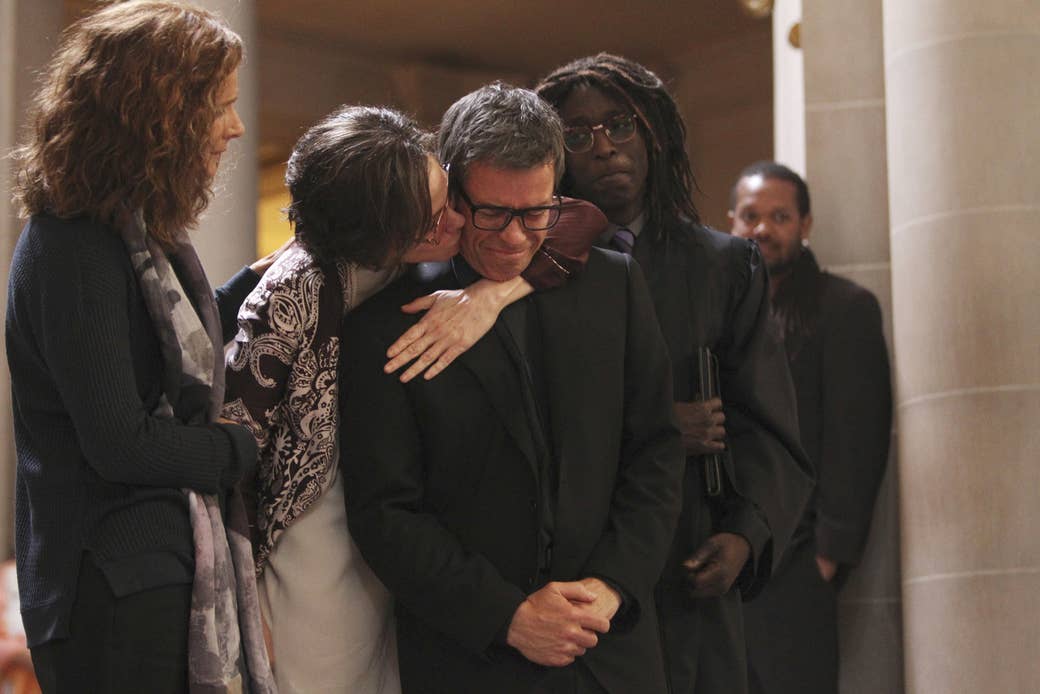
Four years ago, Dustin Lance Black heard that ABC — as in the American Broadcasting Company — was looking for LGBT-themed properties. The filmmaker and producer, who had won an Oscar for Best Original Screenplay for 2008's radical biopic Milk, found it to be "unbelievable" that a traditional broadcast network would embark on such a project, especially after having endured the risks and frustrations of trying to secure funding for Milk. "I had Gus Van Sant, I had Sean Penn, I had James Franco,” Black told BuzzFeed News, “and I couldn't get anybody interested." (That is, until Focus Features, which had found success in Brokeback Mountain, came along.)
The fact that that ABC — “the network I was allowed to watch when I was, like, 8 years old and in a Texas, military, Mormon home” — was soliciting LGBT pitches was “mind-blowing," Black said over coffee and a scone recently in West Hollywood.
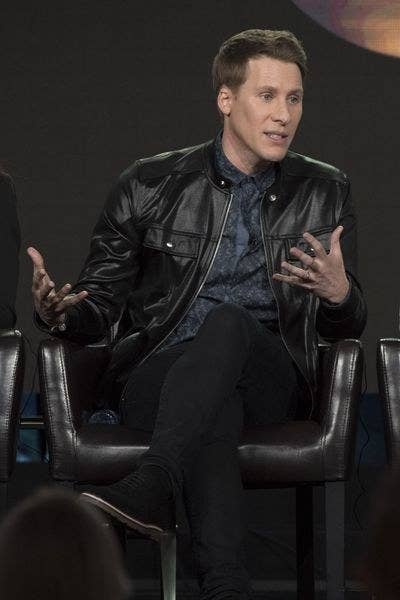
Black moved quickly on the opportunity: His agent set up a meeting with the network, and the result is When We Rise, a four-part, eight-hour scripted miniseries that begins airing Monday, Feb. 27 at 9 p.m. and concludes Friday (it will skip a night for ABC to air Donald Trump's address to Congress on Tuesday). A dramatic retelling of the story of the LGBT civil rights movement in the United States, it’s massive in scope, but focuses on a few key players who walk viewers through history. It stars Guy Pearce, Mary-Louise Parker, Rachel Griffiths, Michael Kenneth Williams, T.R. Knight, Phylicia Rashad, and Whoopi Goldberg, among others (including blink-and-you'll-miss-them cameos, like Debra Winger as Supreme Court Justice Elena Kagan).
It was Black who originally pitched the project as a miniseries. "I never thought it was a series. And it was not a movie," he said. "Movies are, like, a poem. Movies — you can express a feeling or an idea. If you want to tell a story that feels more like a novel or a book, I think miniseries are the home for that."
And he wanted ABC to fund an "extensive research period" during which he could find his own source material (rather than adapt other people's work). They agreed; he took a full year to do it.
Black called these years in his professional life "not fruitful, financially." He could have gone to a premium cable channel such as HBO or Showtime, and he probably would have earned "more time, and more money." But, he said: "I would have had this nagging feeling the entire time that I was wasting all our energy because it would be preaching to the choir in the end. I guess I exchanged my financial well-being for ABC's audience. Because their audience is my family, their audience is who I grew up with."
Why When We Rise's story doesn't begin with Stonewall
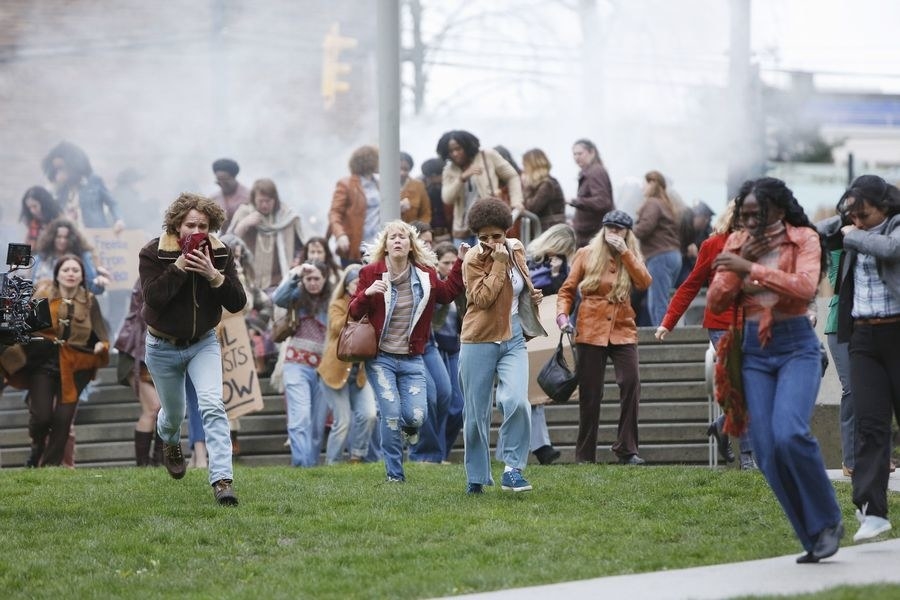
Though the Stonewall Riots of 1969 are generally understood to be the start of the LGBT civil rights movement, Black intentionally didn’t kick off When We Rise there.
There was a time when he considered trying to depict what happened during those rebellious nights and days of demonstrations, but the recollections from protesters were so hazy and implausible that "none of the stories matched up."
Black asked one source about his experiences at the Stonewall Inn. He said the source responded, "Lance, you are completely missing the point. … These are all fabulous stories, aren't they?"; yes, they were, he agreed. "He's like, 'The day before Stonewall, we didn't think we deserved a fabulous story. The day after Stonewall, we knew we did. Everyone kind of made up their own version of it because we fuckin' thought we deserved a story for the first time in our lives. That's Stonewall.'"
"It gave me the chills," he said.
And so Black decided that Stonewall should be the inspiration but not the root of When We Rise.
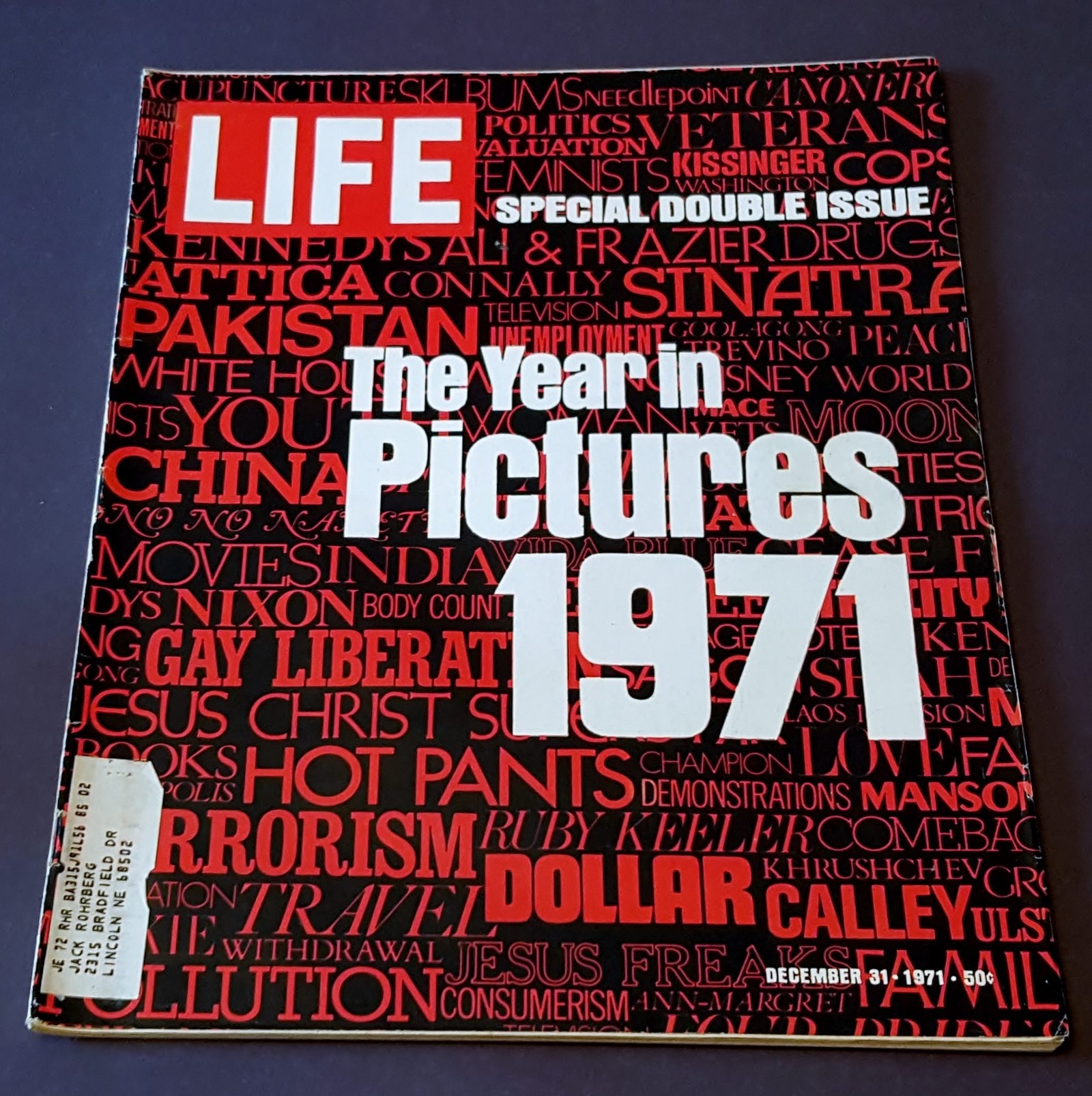
Instead, the series opens in the year 2006, with activist Cleve Jones (Guy Pearce) speaking to an unnamed young man (Douglas Smith) who's recording the interview. "When did you know you had to rise up and fight back?" the kid asks Jones. "Oh, pay attention," Jones snaps. "It wasn't just me who heard the call. It was all of us."
Then it flashes back to 1972, and a high-school-aged Cleve (played by Austin P. McKenzie) is handing out anti-war leaflets at a peace rally in Phoenix. Later, he spies — and surreptitiously takes — a copy of Life magazine's "Year in Pictures" issue for 1971 that says "Gay Liberation" in block letters on its cover, counting the nascent movement among the big stories of the year. The magazine itself becomes the device that connects the series' main characters. Ken Jones (Jonathan Majors) sees it on the battleship he's on in the South China Sea during the Vietnam War; Roma Guy (Emily Skeggs) reads it on a plane as she leaves her Peace Corps stint in Africa.
"The first thing I found that seemed universal in the interviews I did is that almost every single person of a certain age could point to the moment they saw Life magazine's year in review hit their coffee table or their mailbox, no matter where they lived, because everybody got that," Black said. "You flipped it open, and for the first time, it wasn't just filled with horrible things about monstrous gay people. It actually talked about gay and God, it talked about rising up in New York, and they showed these pictures of San Francisco that made it look gay mecca.
"I thought, That's the beginning for this."
How Black discovered the sources who then became the central characters in When We Rise
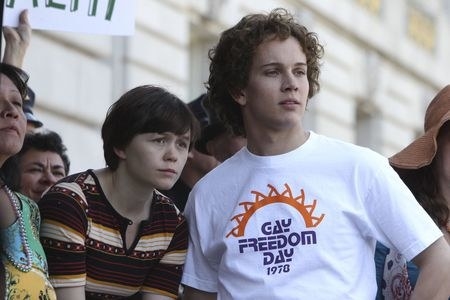
Black already knew Cleve Jones: In 2006, he went to Palm Springs to interview Jones about Harvey Milk, for whom he had worked, for Milk research. "He not only told me the stories of how he did what he did, and who Harvey Milk was," Black said of Jones, "but he also then looked at me and said, 'What is it like to be a part of the first generation in this country with no purpose? And what are you going to do about it?'"
That call to action is in When We Rise, and the unnamed character played by Douglas Smith is a stand-in for Black. (Black knows Smith from HBO's Big Love; Black was a writer for the show, and Smith played the character Ben Henrickson, a rebellious son of polygamous Mormons. "Doug Smith has been playing versions of me for a generation now," Black said.)
Black had a list of criteria for the characters in When We Rise. He wanted them to be people who had worked across social justice coalitions — particularly the anti-war movement, women's equality, and the black civil rights movement — and hadn't focused solely on LGBT issues. He also wanted them to be "lifetime activists," which cut the list of possibilities way down, "because it's such a difficult job," Black said.
And he wanted his main characters to be still be alive — survivors — in real life, defying the usual fates of LGBT characters in film and television history. "You can graduate to a serious dramatic role as long as you die in the end," Black scoffed. Citing Milk, he continued: "I made that movie. I didn't want to make that again."
Roma Guy's and Ken Jones' names kept coming up in his research, and then he discovered their connections to Cleve Jones: He and Roma were friends from San Francisco politics, and he and Ken had worked together many times. "And it became apparent how unique Cleve's story was," Black said. Regarding Jones' ubiquitous presence at key moments in LGBT history, Black said with a laugh that his mom calls Jones "Forrest Gump," whereas Black calls him "Zelig," after the 1983 Woody Allen movie. When We Rise is based in part on Jones' memoir of the same name.
Black wanted to tell a local political story in the series through Roma, a member of the then-homophobic National Organization of Women, who went from being closeted and afraid to an out lesbian raising a child with her partner (and later wife) Diane. She was one of the founders of the San Francisco Women's Building, a locus for feminist programs, and a member of the city's health commission who helped get universal health care for San Francisco.
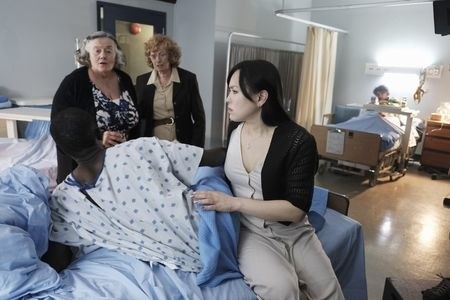
There was also Cecilia Chung — a San Francisco–based HIV/AIDS and transgender activist — with whom Ken Jones was close. "I had known Cecilia Chung and her story forever," Black said. "Some of the trans folks who I know really look up to her."
He had to find Ken Jones, but no one had heard from him in a while. "I found him living across the Bay," Black said. "He was very much still alive.” And to Black’s surprise, Jones also happened to work in a highly progressive, inclusive Christian church. That meant that Jones' leg of the When We Rise story could include a variety of tensions: of being gay and black, and an activist in both communities; his military background; HIV/AIDS (Jones is HIV-positive); and religion.
"It was a lot of homework. It was a nationwide search that became San Francisco–centric. And it ended up on this core group," Black said. "I think a movement is not fueled by and doesn't survive on the personality of one — it's about all the people doing this really hard, often unrewarding work in the middle of it all. And that's what all these guys do."
Casting the series
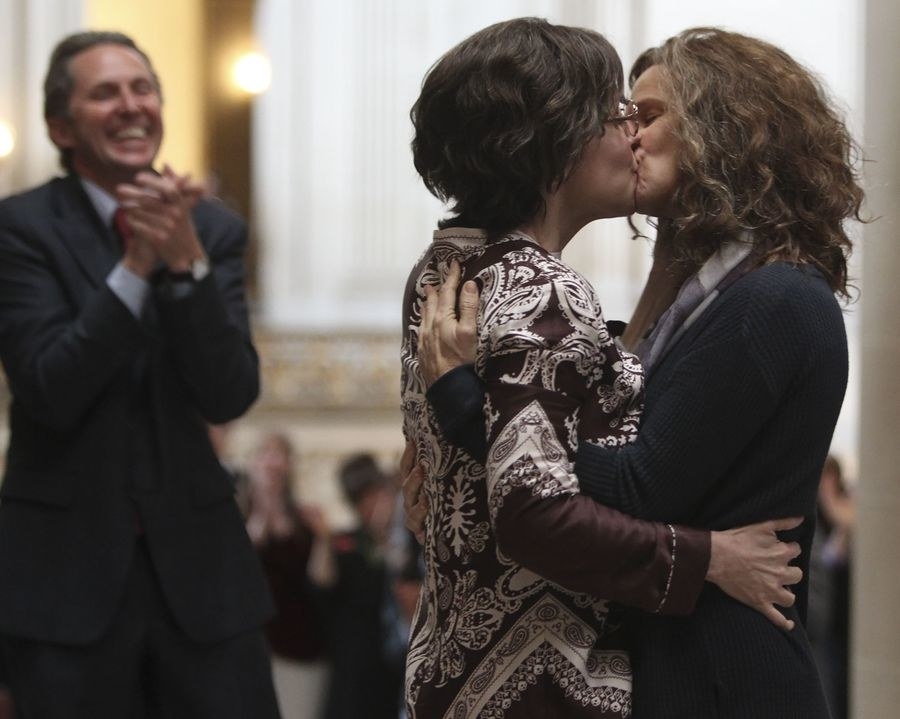
When it came to casting, Black knew he wanted eventually to make a time jump from the early ’80s to 1992. Which meant, as he put it, "I'm going to take a cue and a little bravery from a little miniseries called Roots and I'm going to switch casts."
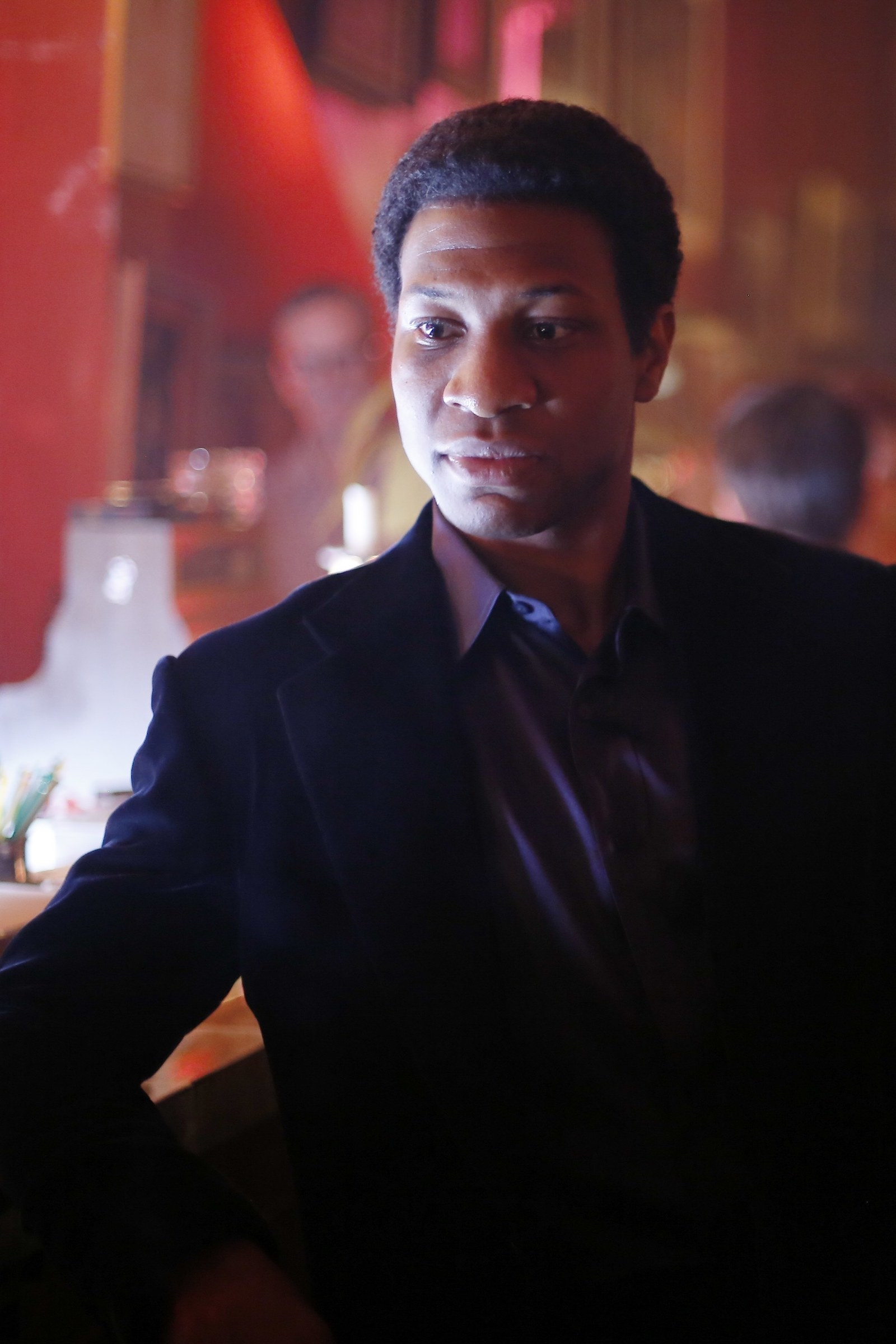
For the younger versions of the characters, the casting directors focused on auditioning theater actors. McKenzie (young Cleve) came out of the Deaf West production of Spring Awakening (he played Melchior in Los Angeles and on Broadway); Skeggs was nominated for a Tony Award for her portrayal of Medium Alison in Fun Home. For young Ken, Black said, the casting directors discovered Majors at Yale's School of Drama. "We watched the tape, and we were like, ‘Holy crap’ — he's already shot two more feature films," Black said. "He's going to be a giant star."
When it came to casting the older actors, Black wrote with specific people in mind, something he doesn't normally do. Roma was always going to be Mary-Louise Parker. "There's something about how frank she is, and still funny," he said. "So when she said yes, I flipped."
He thought of Guy Pearce for Cleve for his "brooding sensitivity." They made him the offer, but didn’t immediately hear back. When Rachel Griffiths met with them for the role of Roma's partner Diane, she said of her fellow Australian actor, "Have you thought about Guy to play Cleve?" Black recalled. "We were meeting to see whether she wanted the role or not, but we sort of forgot to have that conversation." Griffiths called Pearce, and — though he doesn't know whether the move directly influenced Pearce’s decision— the actor did agree to play Cleve.
Michael Kenneth Williams cold-called Black himself. "In very emotional, frank terms, he told me about the people — his friends — growing up in New York who were artists he had lost," Black said. "Again, sort of like Rachel, I was not given a choice whether to cast him or not. He told me what I was going to do and how necessary it was. And I was like, 'Yeah, that's right.'"
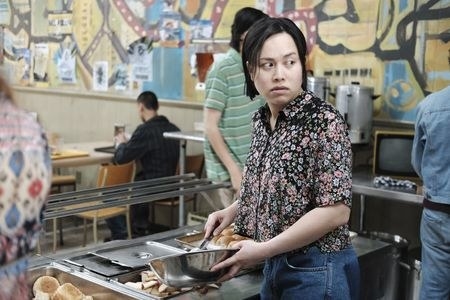
For the four trans roles in When We Rise, Black told the casting directors that they needed to hire trans actors. They recommended Ivory Aquino for Cecilia Chung, a main character, and sent her tape along to Black. "I got a little angry with them," Black said. "I said, 'I want to cast trans — go work harder, go find a trans actress.' They said, 'Ivory's going to be calling you.' She came out to me on the phone as trans." Casting trans performers in trans roles has been a seemingly impossible task for Hollywood, from The Danish Girl to Transparent to Dallas Buyers Club. But that was not the case for When We Rise, Black said. "The big surprise was: It's easy."
"They bring an authenticity to the performance and a lot of great information to the role that a cisgender actor or actress just wouldn't," Black said. "They've lived the experience. They still have to act; they're not playing themselves."
Structuring a story out of 45 years of history
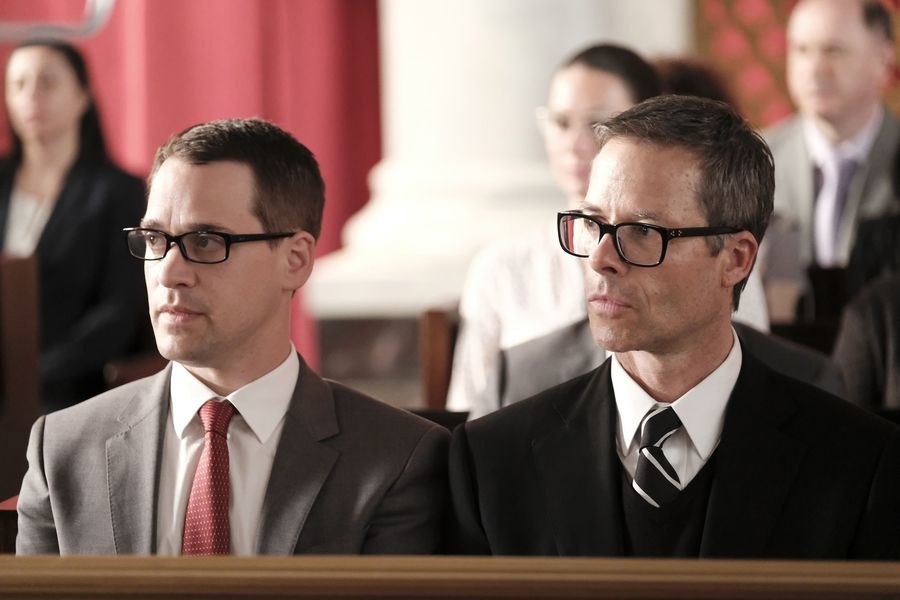
Black first wanted When We Rise to have a 10-hour runtime. "Eight is what I was given, and that's generous, let's be real," he said. Through the characters — this "makeshift family," Black called them — "we'll learn about a movement." So he had to whittle down to the essentials: "What were the critical, pivotal moments in the movement, and the critical, pivotal ideas?"
He settled on the early ’70s migration to San Francisco and the beginning of LGBT political power; the beginning of the AIDS epidemic; the eventual life-saving drugs that stopped HIV from being a death sentence; ’90s complacency; and the fight for marriage equality.
When We Rise unsparingly tackles AIDS, with all the terrifying uncertainties about who was getting it and how it was transmitted rendered in wrenching detail: Several characters become HIV-positive, and some die.
"Political power-building taught us that gays and lesbians could be powerful if we stopped fighting with each other and ignoring each other and started working together. HIV/AIDS made us a family," Black said. "It really bonded us, in a way. Women stepped up. Didn't have to."
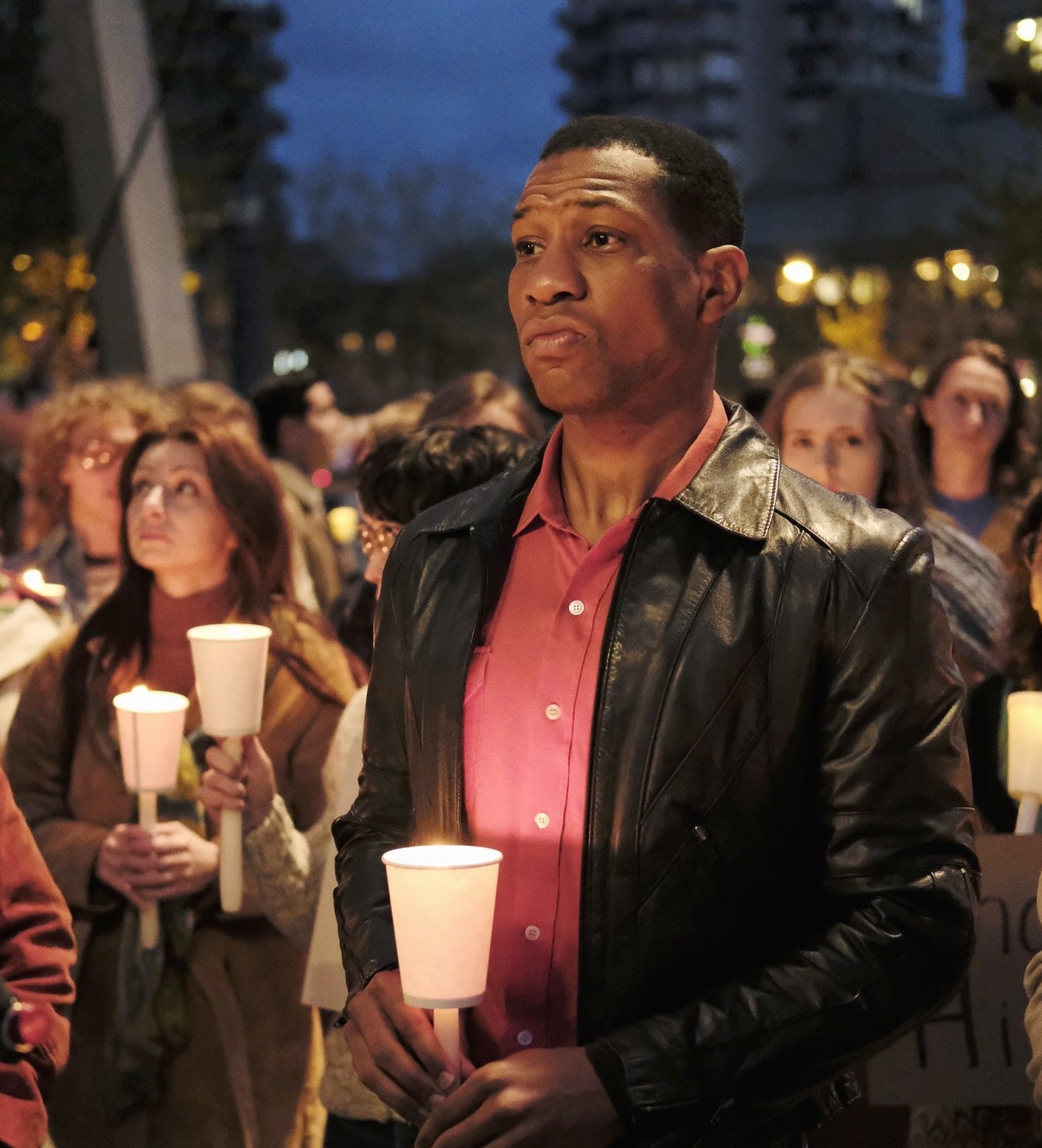
Rather than tell the story of HIV/AIDS activism via the lens of ACT UP's radical approach to protest, it’s explored through the conception of the historic AIDS Memorial Quilt. Cleve Jones thought of the idea after a candlelight vigil in which he asked people to make signs for their loved ones who had died of AIDS, later realizing the placards together looked like a quilt pattern. ACT UP and Jones' different paths eventually converged when it came to the fight for access to life-saving drugs.
That brings When We Rise to the early ’90s, an era when the gay rights movement “turned a government's attention to start to care for us as human beings," Black said. Bill Clinton was the first president to visit the quilt, but then When We Rise fast-forwards to 1997 and skewers Clinton for signing the 1996 Defense of Marriage Act into law and for the disappointing speech he made at a Human Rights Campaign dinner, during which he failed to apologize for the gays-in-the-military debacle and for DOMA. As Black put it: "This is what happens to movements when they succeed. They start to take on a corporate culture, and they slow down. They start accepting crumbs."
After tackling the issue of complacency in the LGBT movement, Black said, he "wanted to leap to the marriage equality battle, and the obvious place to do that was starting with Prop 8 and moving into Edie Windsor's story." (Black and his fiancé, British Olympic diver Tom Daley, will soon marry, though he wouldn't say when: "We're not telling anybody," he said, but “I'd better put a ring on it fast before he comes to and realizes what he's done.”)
As Black sees it, AIDS compelled many LGBT people to reflect on the value of marriage equality. "These were all young people who were radicals, and they never dreamed they'd be fighting for marriage," he said. "The characters along the way, as they grow up and as they mature and as they're faced with a plague, as they're faced with the death of their loved ones, start to find a lot of value in something they always thought was part of an outdated system, which was monogamy and marriage."
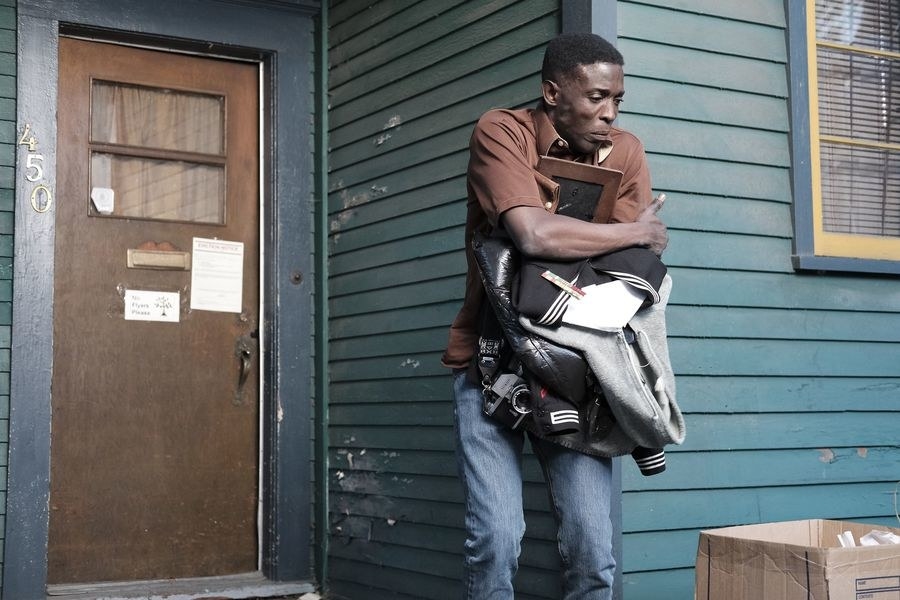
The same-sex marriage fight was sprawling, beginning with domestic partner legislation that later led to state-by-state battles. "There were a lot of people fighting for marriage equality well before Proposition 8," Black said. "A lot of them are my friends and my heroes." However, Black had been involved in bringing the fight against Prop 8 to the Supreme Court, and so he had firsthand knowledge of its inner workings and dramas. (Though Smith does appear in a few scenes as a stand-in for him, "I sort of wrote myself out of history.")
The Supreme Court overturned Prop 8 and the Defense of Marriage Act in 2013, and in 2015 made same-sex marriage legal in all 50 states. But Part 4 of When We Rise isn't solely about marriage. Ken becomes increasingly involved in his church, a story Black was passionate about telling. "For some people, faith is very, very important to them," he said. "It is their family, it is their community. It can be life-saving for some people."
Roma also fights for universal health care in San Francisco in the final episode of the miniseries, with the same tools she'd successfully used with LGBT activism. Black said, "I would hope that story resonates."
The Trump effect
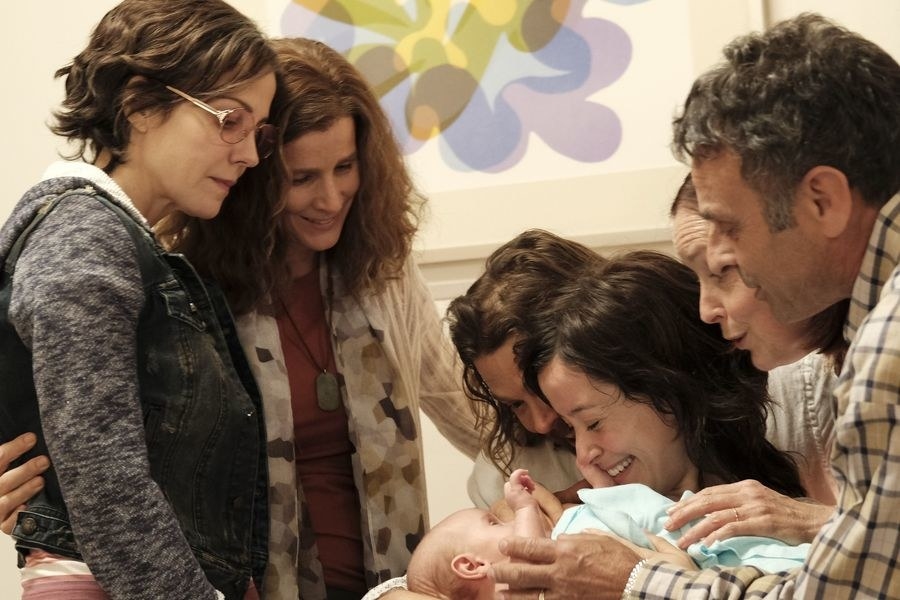
When We Rise was conceived during the Obama administration, and the production wrapped in 2016, at a time when it seemed that Hillary Clinton would be elected president. It's being born into a very different reality, one in which protections for LGBT people are being rolled back; as such, its airing will not be a victory lap. Black himself has been subject to online threats from Twitter users who favor images of Pepe the frog and Nazi symbols. The trailer for the show was taken down and reposted to YouTube several times after vile comments erupted and the downvotes became overwhelming. While When We Rise would surely be a target no matter who took office, Black feels the attackers have been emboldened by Donald Trump's presidential victory.
Trolls' “truther” argument about the project has been an insidious one. "The narrative is: This is fiction. This never happened. People never would have said these things, they never did these things to gay people," Black said. "And I think that's incredibly brilliant and evil. Because it is our history that gives us power. It's our history that teaches us how to move forward." (When We Rise has plenty of archival news footage that proves its realism.)
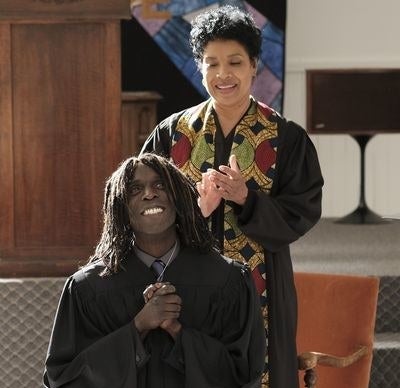
Black said When We Rise was always meant to be instructive. "Even in the Obama time, I did think it was incredibly dangerous how all of these social justice movements seemed to be operating on their own," he said. Cleve and Roma's mantra throughout When We Rise is "one struggle, one fight," and Black thinks activists need to remember — and live — that message now. "I called it When We Rise for a reason," he said.
Black comes from a conservative family, and he said they are his personal measurement for When We Rise’s success. With tears in his eyes, he said: "If I get a phone call from one of my cousins, aunts, or uncles in Texarkana, Texas saying, 'Hey, I watched your show — good on you,' then all of the four years will have been worth it." He said that if his own relatives are moved by When We Rise, then he thinks "that will have been replicated many times" among other conservative people.
Black calls the current spate of hateful political rhetoric "deadly." He said: "I think it makes certain people who don't live on the coasts feel so alone — especially young people — that they consider dire solutions."
And there are miles to go in the fight. "It's a torch to be passed from these folks and the generation that came before to a new generation, calling them to the fight. When you see the ending, I hope that's clear," he said. "It's also a torch that's bright enough that it can be seen by our forefathers and foremothers to say, Get back in the fight — we're not done."
CORRECTION
Phylicia Rashad co-stars in When We Rise, not her sister, Debbie Allen.
